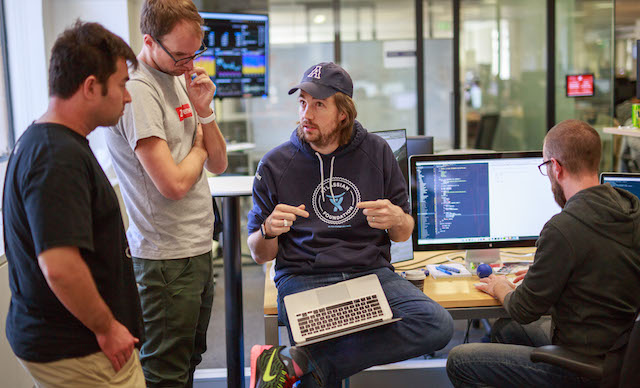Last week’s successful float of software collaboration tool service Atlassian may mark a number of turning points for the tech industry, both globally and in the company’s home country of Australia.
Unlike many of the high profile unicorns which have dominated the tech industry headlines in recent times Atlassian is a real, and profitable, business with revenues of 320 million dollars that has grown at over 40% in each of the last three years.
An even greater difference to the unicorns is Atlassian has raised little in external funding, instead the company was bootstrapped from a $10,000 credit card debt as this BRW profile of the business describes.
Having a profitable, debt free business not beholden to a small army of investors is distinctly different to the Silicon Valley greater fool model hoping for cashed up sucker to buy their unprofitable, but well publicised, operation out. In fact it appears the greater fools themselves are dropping out of the market.
Atlassian’s float may well be the marker that investors are looking for more substance in tech companies than just the promise of millions of eyeballs.
For Aussies the lessons are sharp, Atlassian shifting its corporate functions to the UK last year and now listing on the US stock is a sharp reminder of just how out of touch with the technology sector Australian industry has become.
Had Atlassian listed on the Australian Securities Exchange at the same capitalisation, it would have been the market’s 38th biggest company sitting between two property companies and one of the few technology listings on the board.
On the ASX Atlassian would be one of a handful of technology businesses on the banking, mining and property dominated Australian exchange. It was that dominance of old world businesses and local investors’ lack of understanding of technology stocks that saw the company’s co-founder Mike Cannon-Brookes long maintain that Atlassian would never be listed in Australia.
Another weakness for the Australian markets are local investors’ obsession over yield with businesses large and small paying out dividends at a far greater rate than global equivalents. This makes it hard to retain earnings and invest in new markets and R&D. Basically an Amazon could never exist in Australia.
For companies looking at following Atlassian’s footsteps the lesson is clear – the Bay Area startup model of chasing investor funding with the hope of finding a greater fool isn’t necessarily the best way to build a business and that bootstrapping a cash flow positive business gives founders greater control and flexibility.
To Australian entrepreneurs Atlassian’s lesson is to find a worldwide problem to solve and go global immediately. A domestic market focused primarily on property, banking and mining while being obsessed with short term yield isn’t going to be hospitable for local startups.
Similar posts:



